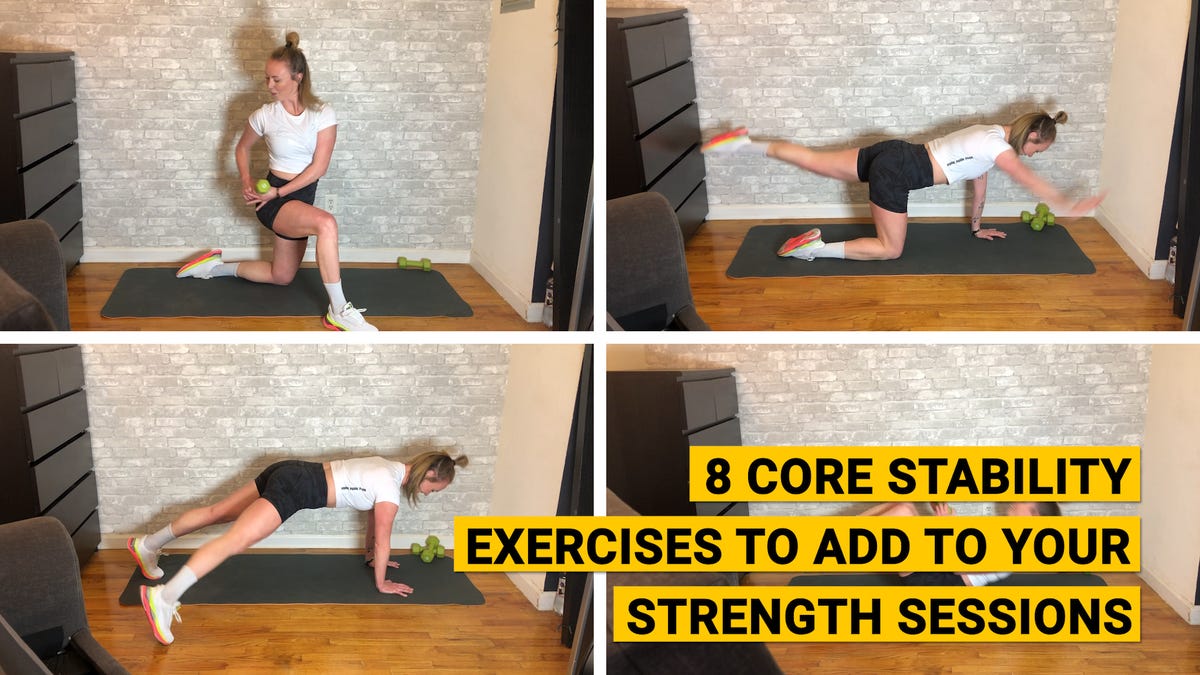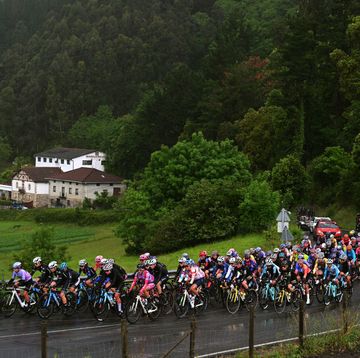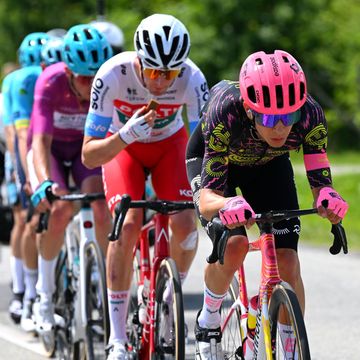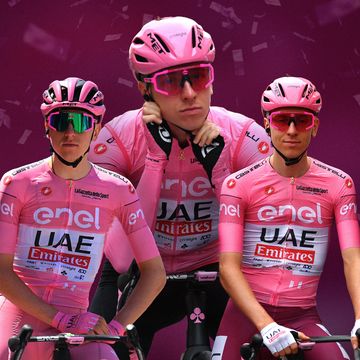Norwegian Thor Hushovd has long been one of professional cycling’s most consistent riders, but after sprinting to victory in the world championship road race in Australia last October, the 33-year-old rose to a higher level.
In 2011, Hushovd will be riding for the Garmin-Cervelo team. This week he sat down at the team’s training camp in Girona, Spain, to speak with Bicycling about his role on the new team, his dream to win Paris-Roubaix, and racing the Tour de France in the rainbow jersey.
Bicycling: Jonathan Vaughters, the general manager of Garmin-Cervelo and your onetime teammate on the Credit Agricole team, made no secret of the fact that he absolutely wanted you on the team this year. Why did you want to ride with Garmin?
Thor Hushovd: First, it’s a good team, and it would be a good team for me for the classics. And it’s a team with good values and policy. It’s safe to say that we're the best classics team this year. At Pairs-Roubaix, for example, we have four guys who could legitimately win it. There is Heinrich Haussler, Martijn Maaskant, Roger Hammond and myself.
Bicycling: Although you’ve always been a consistently good rider, you never had the really big win. That changed at the world championships last year. Were you surprised?
Hushovd: I knew I could win, but when you’ve had a high goal for a number of years, even though you may still believe it is possible, until it happens it remains unreal. That changed in Australia.
It was back in 2004 when I finished top 10 in Paris-Roubaix that I first understood that I could win great races like the classics or the world championships. But for some reason I never had had a good world championships.
In a race like the worlds, everything has to come together just right. The course changes every year, and there are some years when it just doesn’t suit you. But I knew the route in Australia potentially suited me, and I planned for it all year. Worlds is a race you must plan for all year. You can’t just come out of the Tour of Spain and say, “Oh, I feel good. I think I’ll try to win worlds.”
Last year in Mendrisio (host to the 2009 world championships) I abandoned. And afterwards I said, “OK, next year I’m going 100 percent for the worlds. And I was ready to not do the Tour de France to better prepare, because you have to be able to finish the season at 100 percent.
In the end, though, I broke my collarbone after the classics, and that forced me to take a break. I did the Tour de France and felt really strong; I never went too deep. Then I rested in August and used the Tour of Spain to peak.
Bicycling: Where does Paris-Roubaix fit in now?
Hushovd: That’s still my dream. I can win three classics: Milan–San Remo, the Tour of Flanders, and Roubaix. But of the three, it is Paris-Roubaix for me. And now in the last two years, I finished second and third, so there would be nothing bigger than winning Roubaix for me, especially this year as the world champion.
Bicycling: You may well have the best team in Paris-Roubaix, but you don’t have Fabian Cancellara. What is it going to take to beat him?
Hushovd: That he be just a little less good. Not a lot, just a little. He was very strong last year, but the year before? Then you have to ride smart. If I can come into the velodrome with Cancellara, I can beat him.
Bicycling: Tom Boonen once told me, “The Tour of Flanders is more difficult, but Paris-Roubaix is more treacherous. You can feel good all day long and then nothing.”
Hushovd: I would agree. I’ve had that feeling. The first 100 kilometers are very nervous. There are always crosswinds, and you have to be very concentrated. Then you have a big fight for position before every section of cobbles, and after more than six hours of that, it can really take its toll.
Bicycling: One of the most often asked questions is, how is all the talent on the Garmin-Cervelo team going to pan out? Who is going to work for whom? You’ve won eight Tour de France stages. Are you really going to work for Tyler Farrar, for example? Are you going to go into the sprints with two full sprinters?
Hushovd: Two sprinters does not work. So we will have to look at each final and decide. If it’s a hard finish, then I may be better suited. For example, I know that there are three hard finishes in the first week of the Tour de France. If there is a hard climb near the end, or an uphill finish, I might be better. But I can work for Tyler, no problem. And you will see us working for each other this year, definitely.
But I have to be realistic. Mark Cavendish has won 15 stages in the Tour over the last three years; I’ve won three. And I’d prefer to win Paris-Roubaix than another stage in the Tour de France. And I don’t want to keep getting second, third, fourth, or fifth in the sprints. In a situation like that, I’d prefer to help someone else on the team. And Tyler Farrar has proven he can beat Cavendish.
Bicycling: Cavendish is a truly amazing sprinter, but a new wave of competition is rising. And a lot of other teams have put together a lead-out train that can rival the HTC train.
Hushovd: Absolutely. We have a really, really strong train, and that’s where we have our advantage. The year Mark won six stages in the Tour, his team always put him in the front position. This will maybe change now.
Bicycling: Is focusing on the green jersey in the Tour a motivation again?
Hushovd: I don’t know. It’s a goal for Tyler as well. And that’s fine with me, because this year I have the rainbow jersey. I’d sort of like to keep it on during the Tour. And if I change it for a couple of days, I’d prefer it was yellow. But otherwise I am OK with the rainbow jersey.
Bicycling: This year’s world championships also apparently favors sprinters. Will you prepare for it like last year?
Hushovd: Absolutely: 100 percent.













